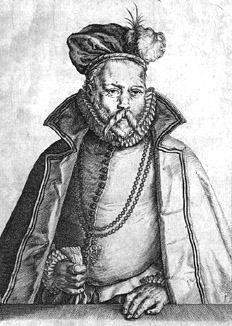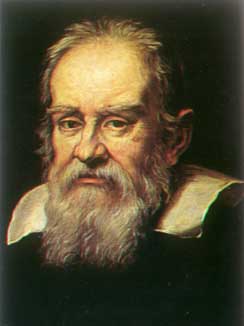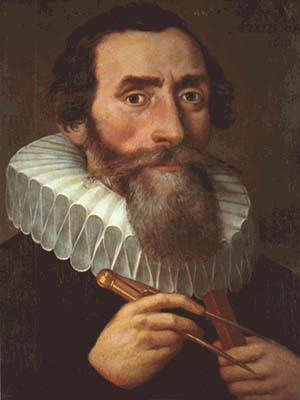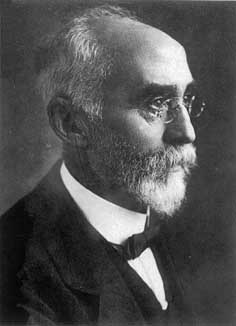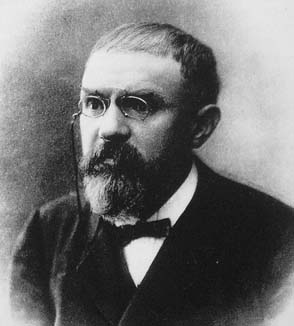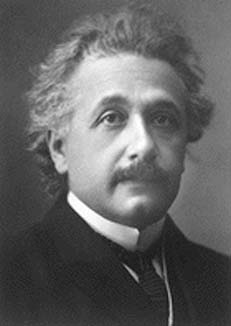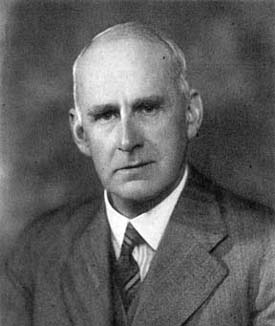 Copernicus 1473 - 1543
|
All
discoveries in science are driven by
the scientific thought environment of the times. Let us take the case of the
most celebrated discovery of Newton's Law of gravitation. It is a charming
story to tell young children that an apple fell on Newton's head and the law
of gravity came out. There could be nothing more further than the truth and
the way science is done. It was the laborious and painstaking work of Kepler
that was the key to Newton's discovery. Kepler analysed the
observational data of motion of planets obtained by the greatest naked eye
astronomer, Tycho Brahe and formulated his three celebrated laws of
planetary motion. Today given the Kepler's laws, a college student will
immediately derive the inverse square law of gravitation. Was Newton's discovery almost driven by Kepler's work? Yes, yet something more was needed. True, without Kepler, it was inconceivable but even with Kepler, there was something critically new needed and that was the mathematical tool of Calculus which Newton had to invent. It is not for nothing that Newton, who was by no means an example of humility and modesty, said, "If I have seen farther, it is by standing on the shoulders of giants". It was the chain of thought set in motion by the pioneering work of Copernicus, Galileo and Kepler which had matured and charged the atmosphere for Newton to make the monumental discovery. It is this charging of the space of scientific thought which is what makes the way for discoveries. Had the mathematical tool of calculus been available to Kepler, for the law of gravity I am afraid there won't have been anything left for Newton to do? Thus Newton's discovery of gravitational law was to a good extent situational. Had it not been for him, someone else would have certainly done it because the thought atmosphere was fully charged and the time was ripe for it. It should however be remembered that the discovery of calculus was non-trivial, and for that too the efforts were afoot across the channel in France. Emergence of calculus was thus also quite in sight. This is however the general rule for scientific discoveries but there is a glorious exception of Einstein's discovery of his theory of gravitation, General Relativity. The century of the theory, Special Relativity, we are now celebrating was in true sense as alluded above was situational. As a matter of fact, not only the atmosphere was highly charged with its emergence, many of its consequences had already been worked out by Lorentz and Poincaré. Owing to their great reputation, they could not take the bold step of pronouncing that the velocity of light is a universal constant - the same for all observers. This was then left to a young clerk working in a patent office in Bern, Switzerland to make the bold pronouncement and run away with the credit of discovering a new relativistic world view of Special Relativity. This young clerk was none other than Albert Einstein who had then no reputation to guard and hence was completely free to be bold and imaginative. Thus the discovery of Special Relativity was not only situational but Einstein was incredibly lucky. Because the atmosphere was so charged and almost oozing out that it was there for anyone for taking. By contrast, the situation was completely different for General Relativity. At the turn of the previous century, there was no serious question in gravitation that called for attention. Newton's law beautifully explained the motion of planets around the Sun with extraordinary accuracy and precision. It was a wonderful demonstration of the power of physical law described by a mathematical equation done here and out in the heavens go planets exactly the way the equation dictates. It was a great triumph for scientific method and its analytical tools. Its success was unprecedented in the history of human enquiry into understanding of the Nature. It is this kind miracle of miracle that has earned science its super eminent credibility and acceptance. There was only a spec of discrepancy noticed in the orbit of the planet, Mercury. All planets go around in elliptic orbits with the Sun at focal point. The closest point to the Sun is called perihelion. In the case of Mercury, there was a very small but observable shift of the perihelion by 43'' seconds of arc in 100 years (This shows how labourious and patient astronomers are). I would however believe that this discrepancy played no role in Einstein's resolve to seek a new theory of gravitation. On the other hand, there were exciting new things happening every day in the atomic physics which were calling for explanation and a new mechanics of the Quantum was being developed. It is not that Einstein did not work in that, he just discovered one wonderful result, the photo-electric effect which was good enough to win him a Nobel Prize. He then focused on the conceptual question of how to make light, which has constant velocity, feel gravity? All other things when they feel force their velocity changes but light's velocity can't change. He then addressed this serious conflict, and worked for good ten years to resolve the question - how to make light feel gravity without changing its velocity. What is actually required for light to feel gravity is that while grazing a gravitating body  it should, like all other particles, also bend towards it without of course
altering its velocity. This conflict could be easily
resolved if gravity curves space around a massive body, and light then
simply floats in it freely as does a piece of log in a river. As the river
bends so does the freely floating log. That means if a gravitating body
curves the space around it, then light which freely propagates in it would
automatically bend as space bends.
it should, like all other particles, also bend towards it without of course
altering its velocity. This conflict could be easily
resolved if gravity curves space around a massive body, and light then
simply floats in it freely as does a piece of log in a river. As the river
bends so does the freely floating log. That means if a gravitating body
curves the space around it, then light which freely propagates in it would
automatically bend as space bends. Thus proclaimed Einstein that gravity can faithfully be described only by the curvature of space-time and so was born his celebrated theory of General Relativity which is rightly regarded as the greatest feat of human thought. Though all books on General Relativity are wrought with the phrase "bending of light" which is patently as wrong as to say the Sun goes around the Earth. It is the space that bends, light by itself can't bend - it freely floats in space. And it was the bending of space and not light what was for the first time measured by the British astronomer Sir Arthur Eddington at the time of total solar eclipse in 1919. That put the stamp of verification and authority on this very bizarre and outlandish idea of gravitational field producing curvature in space-time. General Relativity is perhaps the sole example of a discovery which had little to derive from the scientific atmosphere of the times. It was a single handed and dogged effort of Einstein alone. If it were not for him it would have not been seriously thought or sought for perhaps until the mid 60s. It is only then the high energy phenomena in astrophysics started asking explanation beyond the Newtonian gravity. Thus discovery of General Relativity is rather very unique and most outstanding in the way it was done and the way it revolutionized our concepts of space-time-matter and the Universe. It is this uniquely wonderful and profound creation that we salute when we single out Einstein from the rest of his contemporaries. |
